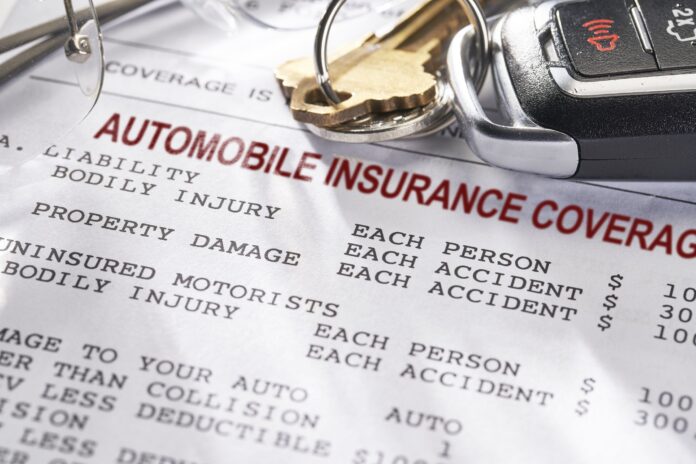For decades, driving a vehicle has been seen as a symbol of independence and endless possibilities. You can almost picture yourself cranking up the radio and roaring off into a brilliant sunset.
But before you go out and buy your first vehicle, here are a few words of caution: Responsibility is the main ingredient in safe driving. We’re talking about auto insurance, of course. Whether you’re purchasing your first vehicle or your parents are urging you to get your own policy, selecting the appropriate auto insurance might appear difficult. The work, on the other hand, isn’t all that bad. You can acquire a reasonable policy with the appropriate coverage types at a fair price if you prepare ahead of time.
Financial Responsibility of Car Insurance

Each state has its own version of “financial responsibility” legislation, which implies that if you drive a car, you must prove that you are able to cover others’ losses in the event of an accident. You’ll need to demonstrate that you can reimburse other drivers for automobile repairs and medical expenses from damages you cause.
Car insurance is the most cost-effective and simplest way to drive legally. The majority of people choose to drive legally because it’s usually the most inexpensive and straightforward approach to do so.
Comprehensive and collision coverage are also available if you want to protect your vehicle from being damaged. Collision and comprehensive coverage can help further cover your car from collision damage, criminal damage, and weather-related damage.
There are several additional ways to fulfill legal, financial obligations in your state, in addition to the two already mentioned.
- Self-insurance – Self-insurance might be expensive. In New Jersey, for instance, if you’re required to post a surety bond, it must be at least $300,000 and $10,000 for each additional vehicle (up to $1 million).
- Posting a deposit or bond with the state – Although it is less expensive than self-insurance, it may still be costly. In California, for example, you must post a $35,000 cash or surety bond with the DMV. Not all states allow you to post a bond or deposit.
How Much Does Car Insurance Cost?

According to the most recent information from the National Association of Insurance Commissioners, the average cost for liability, collision, and comprehensive insurance is $1,134.
First-Time Buyers Pay More For Car Insurance
If you’re a first-time driver or purchasing your first vehicle insurance policy, you’ll probably pay more than someone who has had insurance for years. This is because car insurance providers consider driving and insurance histories when determining auto insurance premiums. The more miles you rack up on your driving record, the more likely you are to submit a vehicle insurance claim.
According to insurancenavy.com when looking for the cheapest car insurance in Illinois, Insurance companies consider a variety of criteria when deciding how much to charge, which include:
- Car type
- Age
- Sex
- ZIP code
- Marital status
- Credit score
- Occupation
Many New Drivers Don’t Have to Stay on Their Parent’s Policy

It’s possible that your parents have been insured with the same company for years, but it doesn’t ensure that their car insurance provider is the best fit for you. Individual car insurance is calculated based on a number of the above criteria. Even if your parents believe they are getting great rates, that may not always be the case. The smartest move is to shop around and receive multiple quotes.
Don’t try to scam your insurance
In the face of rising costs, you could be inclined to “fudge” your figures to receive a lower price. It’s not uncommon. About 10% of drivers have intentionally underestimated mileage, taken the driver out of their insurance and provided a zip code in a less attractive area than that the vehicle is stored in, or stated that their car was for enjoyment instead of for commuting.
Although you may be able to enjoy lower premiums by going this route, all the lies will surface when you make claims. If you file a claim you could end up in the position of having to pay the full amount of damages since your insurance is no longer valid as the price you paid wasn’t in line with the reality of your circumstance. This is why it’s important to be cautious and be honest when shopping.

- Discounts may be an option for you
One method to save money on insurance for your car is is to inquire for discounts. The majority of companies offer discounts on their websites however, there could be certain discounts that aren’t mentioned. Common discounts include:
- Discounts for members of professional associations (be sure to mention yours)
- Special bundle pricing for joining your car insurance policy to other insurance policies, such as renters or homeowner’s insurance
- Multi-car discounts
- Special offers to pay your annual or six-month premium in one lump sum
- Anti-theft systems that are installed
- Discounts on good driving records
- Discounts on timely payments that can help you save money in the long run.
After you’ve completed these steps, you’ll be able to rest assured that you’ve done the right thing to make sure that you’re getting the best price for personal auto insurance.
Make sure to be thorough when you research, beginning with national businesses, while not forgetting local businesses to find rates. You’ll be grateful that you made the right choice. Consumers who shop around may save up to 47% on premiums and as high as $847 annually. Even if you just make a small amount of savings, 200 dollars, it’s money that can be used (or kept) elsewhere.









